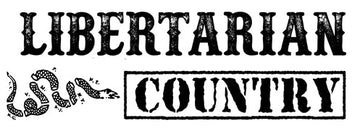In every era of civilization, the presence of the rich—the entrepreneurs, investors, innovators, and builders—has been both envied and essential. Their existence provokes moral debate, yet their contributions form the foundation upon which opportunity, progress, and freedom are built. To reject the value of the rich is to misunderstand the role they play in the complex machinery of a free society. When properly constrained by the rule of law but free from political domination, the wealthy serve as catalysts of empowerment, vision, and entrepreneurial possibility—the very forces that sustain liberty itself.
The Rich as Engines of Empowerment
At its core, wealth represents the stored energy of human potential. When an individual or group accumulates capital through voluntary exchange and innovation, that capital becomes a tool for empowering others. Every factory, startup, or venture capital investment converts private wealth into public opportunity. The rich hire, train, and fund the dreamers who would otherwise lack the means to execute their ideas.
Without wealth accumulation, there would be no funding for innovation, no large-scale projects, and no institutions capable of advancing civilization beyond subsistence. The small business owner who takes a loan from a successful banker, the engineer who finds backing for a new invention, the artist who receives a grant from a philanthropic foundation—all are beneficiaries of wealth put to productive use.
In this sense, the existence of the rich is not a moral blemish on society, but a vital artery through which opportunity flows. When wealth is the result of creativity, risk-taking, and voluntary trade—not political manipulation—it acts as a social multiplier. The rich empower others by creating ladders, not walls.
Wealth as a Manifestation of Vision
To accumulate substantial wealth in a free market is to have demonstrated extraordinary foresight. The rich are not merely collectors of resources; they are visionaries who see what others cannot yet imagine. A Steve Jobs or an Elon Musk does not become wealthy by hoarding the ideas of others, but by envisioning an entirely new paradigm—one that alters how humanity communicates, travels, or consumes energy.
In a just system, wealth is the shadow cast by value creation. It is the moral consequence of serving others efficiently, effectively, and creatively. The rich embody the principle that ideas, when pursued with courage and precision, can transform the abstract into the tangible. Their success proves that vision matters—that the individual mind can change the trajectory of civilization without permission from the collective.
And it is precisely this independence of vision that sustains freedom. The ability to think differently, to take risks, and to defy consensus is what separates a free society from a conformist one. The rich demonstrate, by example, that independence of thought has value—and that liberty rewards those who act upon their convictions.
Entrepreneurship: The Lifeblood of Liberty
The entrepreneur stands at the intersection of vision and action. In a society that honors voluntary exchange, entrepreneurs are the lifeblood of progress. They take resources from less productive uses and channel them into more efficient ones. They organize labor, technology, and capital into structures that create wealth for all participants.
The rich, especially those who earned their fortune through enterprise, embody this principle. Their existence is proof that innovation is rewarded, and that one’s destiny is not solely determined by birth, status, or privilege. When individuals can rise from obscurity through ingenuity and effort, freedom becomes more than an abstract slogan—it becomes a lived experience.
Entrepreneurial wealth is also a buffer against tyranny. A society composed entirely of dependents—on the state or on central institutions—is one that can be easily coerced. But when wealth is decentralized among individuals and private enterprises, power becomes dispersed. The self-made rich are living demonstrations of self-reliance, serving as reminders that the individual, not the bureaucracy, is the ultimate driver of human advancement.
The Rich Without Political Authority
There is a crucial distinction between the rich who earn through markets and those who control through politics. The former derive their influence from the voluntary choices of others; the latter from coercion. A billionaire who sells products that millions freely choose to buy is fundamentally different from a bureaucrat who extracts taxes by decree.
A society needs the rich precisely because they represent power without political authority. Their wealth allows them to challenge the state, fund independent journalism, support innovation, and preserve cultural diversity. When wealth is distributed through voluntary exchange, it becomes a counterweight to governmental overreach. Economic independence is political independence.
Moreover, the rich without political authority often serve as the patrons of art, science, and education—fields that stagnate under central planning. From Carnegie’s libraries to modern philanthropic foundations funding medical research, private wealth has historically achieved what state bureaucracies cannot: progress without compulsion.
Freedom as the Ultimate Dividend
In the end, the defense of the rich is not a defense of greed—it is a defense of freedom. Wealth earned through voluntary exchange represents the triumph of choice over force, of innovation over stagnation, of individuality over conformity. To vilify the rich is to attack the very process by which society lifts itself out of poverty.
The true measure of a free civilization is not equality of outcome, but equality before the law—and the liberty for each person to rise as high as their talents and virtues allow. The existence of the rich reminds us that upward mobility is possible, that the human mind is capable of shaping destiny, and that power need not be centralized to be effective.
A society that celebrates its visionaries rather than punishes them ensures that freedom remains not only an ideal, but a living, expanding reality. In that sense, the rich are not the enemies of equality—they are the architects of possibility.



